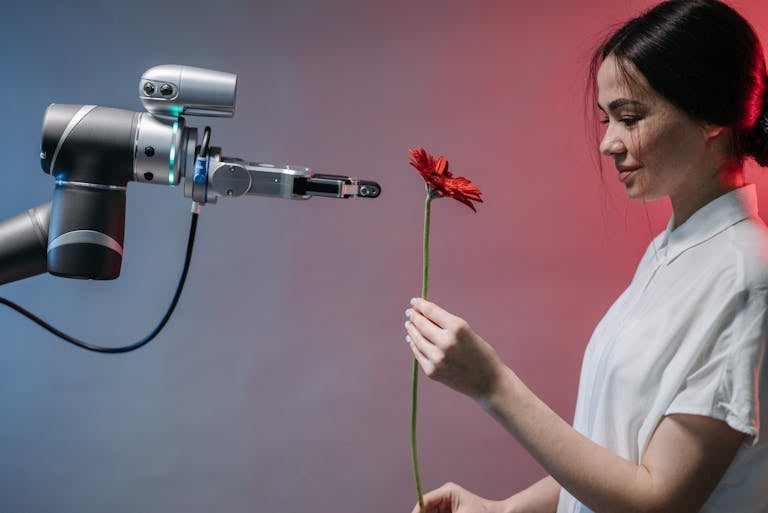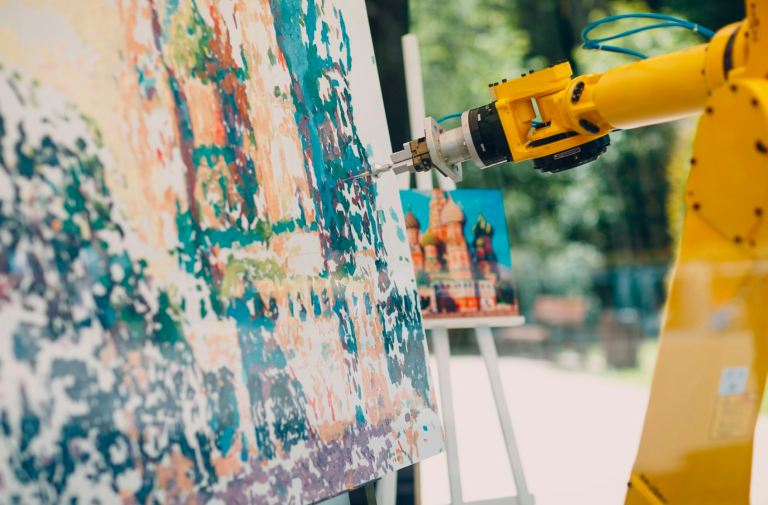How AI is Transforming the Automotive Industry 🚗🤖
The automotive industry has always been a hotbed for innovation, from the mass production techniques introduced by Henry Ford to the sleek, electric vehicles of today. But now, a new player is taking center stage: Artificial Intelligence (AI). AI is rapidly transforming the way cars are designed, manufactured, driven, and maintained. In this blog post, we’ll explore how AI is revving up the automotive industry and what exciting developments are on the horizon.
Table of Contents
1. AI in Automotive Design 🖌️
2. Revolutionizing Manufacturing Processes 🏭
3. The Rise of Autonomous Vehicles 🚙
4. Predictive Maintenance and AI 🔧
5. Conclusion: The Road Ahead 🚀
6. FAQs 🤔
AI in Automotive Design 🖌️
Designing a car is no small feat. It’s a complex process that involves numerous iterations and countless hours of engineering. AI is changing the game by streamlining this process. With AI-driven design software, automakers can quickly create and test virtual models. This means faster design cycles and the ability to explore more innovative concepts.
Moreover, AI helps in optimizing designs for aerodynamics and fuel efficiency by simulating thousands of scenarios at the click of a button. This not only saves time but also leads to more energy-efficient vehicles, benefiting both the environment and the consumer’s wallet. 🌍💰
Revolutionizing Manufacturing Processes 🏭
Manufacturing is another area where AI is making a significant impact. AI-powered robots are becoming a common sight on assembly lines, where they help increase precision and reduce human error. These robots can work tirelessly, ensuring that quality standards are consistently met.
Additionally, AI is used in supply chain management to forecast demand, optimize inventory levels, and reduce waste. This intelligent approach to manufacturing ensures that the right parts are available at the right time, minimizing production delays and keeping costs in check.
The Rise of Autonomous Vehicles 🚙
Perhaps one of the most exciting developments in the automotive industry is the rise of autonomous vehicles. AI is the brain behind self-driving cars, enabling them to perceive their environment, make decisions, and navigate safely on the roads.
Companies like Tesla, Waymo, and Uber are investing heavily in AI to bring fully autonomous vehicles to the market. While we’re not quite at the point of widespread adoption, the progress is promising. Imagine a future where your car can drop you off at work and then park itself or even pick up groceries while you focus on other tasks. 🛒
Predictive Maintenance and AI 🔧
Last but not least, AI is revolutionizing vehicle maintenance. Traditional maintenance schedules are often based on fixed intervals or when something breaks down. AI changes this by enabling predictive maintenance. By analyzing data from sensors and past performance, AI can predict when a part is likely to fail and alert the owner before it happens.
This proactive approach reduces downtime, saves money on repairs, and ensures vehicles run smoothly. It also enhances safety by preventing unexpected failures that could lead to accidents. 🚦
Conclusion: The Road Ahead 🚀
The integration of AI in the automotive industry is just getting started, but its impact is already profound. From design to manufacturing, autonomous vehicles, and maintenance, AI is paving the way for smarter, safer, and more efficient cars.
As technology continues to evolve, the possibilities seem endless. It’s an exciting time for car enthusiasts and tech lovers alike. Buckle up, because the journey ahead promises to be exhilarating! 🏎️💨
FAQs 🤔
Q1: How is AI improving car safety?
A: AI enhances car safety through advanced driver-assistance systems (ADAS) that include features like lane departure warnings, automatic braking, and collision avoidance systems.
Q2: Will AI make cars more expensive?
A: Initially, the integration of AI might increase costs, but over time, the efficiencies gained in production and maintenance could lead to more affordable vehicles.
Q3: Are there any risks associated with AI in cars?
A: While AI offers many benefits, challenges such as cybersecurity threats, system failures, and ethical considerations need to be addressed as the technology evolves.
Q4: When will fully autonomous cars become mainstream?
A: It’s difficult to predict an exact timeline, but many experts believe that fully autonomous cars could become mainstream within the next decade as technology matures and regulations evolve.




